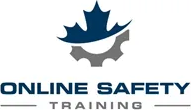Propane Handling & Exchanging

Handling and exchanging propane cylinders in Canada requires adherence to safety regulations and best practices to ensure the safety of both users and the environment. Here are some key guidelines:
- Transportation and Storage:
- Transport propane cylinders in a secure, upright position in a well-ventilated area of your vehicle. Ensure they are properly secured to prevent rolling or tipping.
- Store propane cylinders outdoors, in a well-ventilated, shaded area, away from direct sunlight and heat sources. Keep them upright and on a stable surface.
- Keep cylinders away from open flames, ignition sources, and combustible materials.
- Inspect the Cylinder:
- Before use, inspect the propane cylinder for visible damage, such as dents, rust, or corrosion. Do not use a damaged cylinder.
- Use the Proper Regulator and Equipment:
- Ensure you are using the correct regulator and equipment for your specific application. Follow manufacturer recommendations.
- Connect and Disconnect Safely:
- When connecting the cylinder, make sure the valve is tightly closed. Use a wrench or pliers to tighten it securely.
- Apply an approved leak detection solution to the connections to check for leaks after installation.
- When disconnecting the cylinder, turn off the valve first, then slowly release any remaining pressure in the line.
- Maintain Proper Ventilation:
- Use propane appliances in well-ventilated areas to prevent the buildup of potentially hazardous fumes.
- Proper Use and Handling:
- Follow the manufacturer’s instructions for the specific appliance or equipment using propane.
- Never use propane indoors unless the equipment is designed and approved for indoor use.
- Propane Handling and Exchanging
- Avoid Overfilling:
- Do not overfill the cylinder. Only fill to the specified level indicated on the cylinder.
- Proper Disposal:
- If a cylinder is expired or damaged beyond repair, it should be properly disposed of or recycled according to local regulations. Do not attempt to repair damaged cylinders.
- Leak Detection and Emergency Response:
- Familiarize yourself with the smell of propane (it has a distinctive odorant added for safety). If you smell gas, follow proper emergency procedures, which may include shutting off the gas supply and contacting the appropriate authorities.
- Exchanging Cylinders:
- When exchanging a propane cylinder, ensure that the cylinder you receive is in good condition and properly labeled with its contents.
- Propane Handling and Exchanging
- Training and Certification:
- If you are handling propane cylinders as part of your job, ensure that you are properly trained and certified in propane handling and safety procedures.
- Compliance with Regulations:
- Stay informed about local, provincial, and federal regulations regarding the handling and transportation of propane cylinders.
Always consult with local authorities or industry experts for specific guidelines and regulations that may apply in your region. Following these best practices helps ensure the safe Propane Handling and Exchanging of propane cylinders in Canada.
Click here for an online propane handling and exchanging course.
